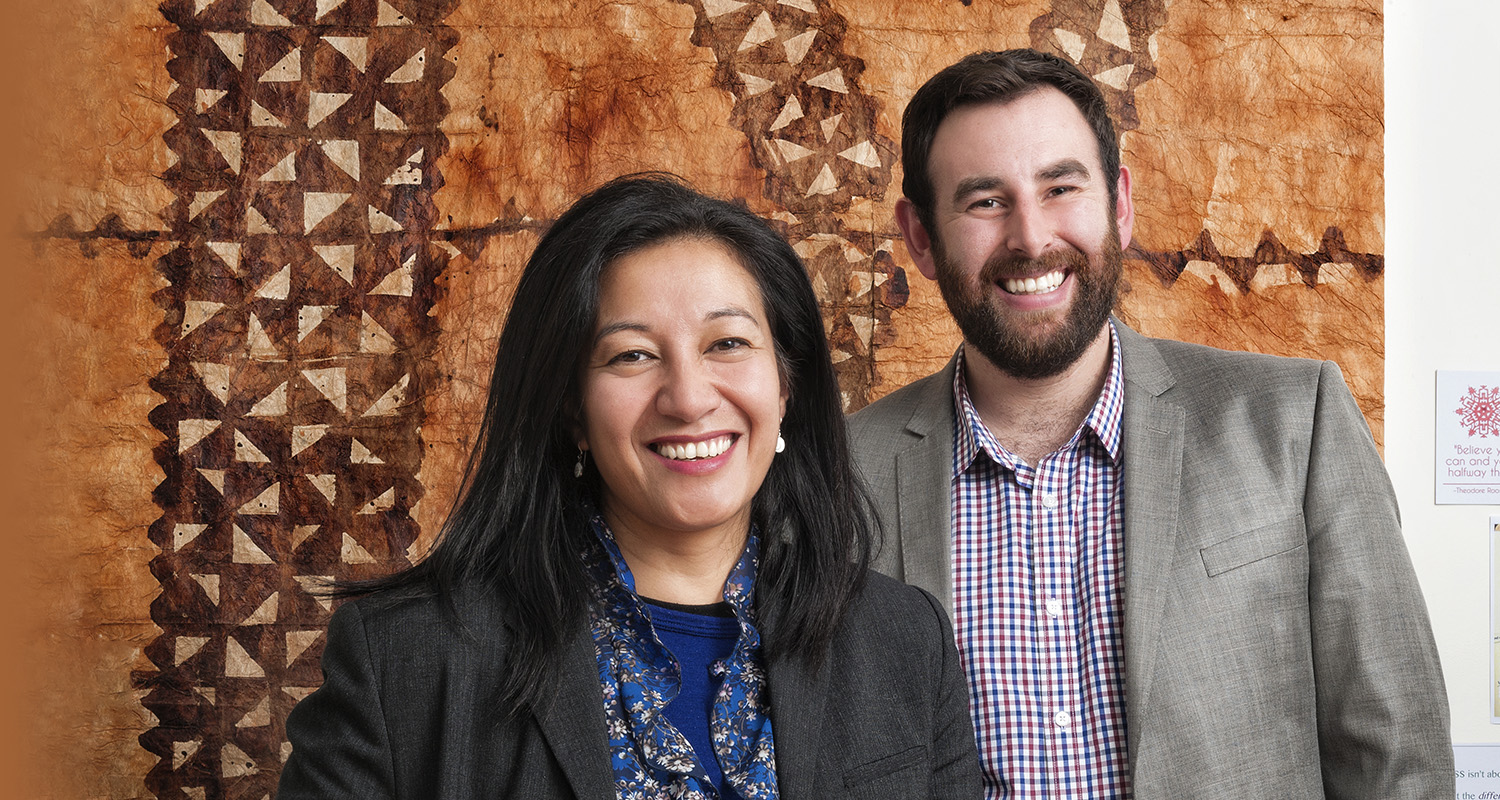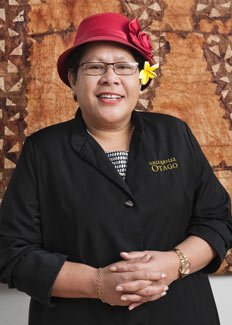
Pacific focus
Increased emphasis on strategies to help Pacific students achieve at Otago is reaping rewards.
Otago's Pacific focus has strengthened greatly since the early 2000s – expanding from providing dedicated practical support for students, to the introduction of a detailed Pacific Strategic Framework to ensure they succeed.
Director of Pacific Development Dr Tasileta Teevale says her office was set up in 2013 to strategically monitor and implement the Pacific Strategic Framework, which she describes as the University of Otago's masterplan with regards to ensuring Pacific students achieve.
"When you look at the framework it has six overarching goals, about 20 key strategies and 66 key activities.All of those strategies and all of those activities are around services to Pacific students because the University of Otago wants Pacific students to achieve at the same level as non-Pacific students."
The goals cover leadership on Pacific matters, encouraging Pacific research excellence, strengthening community engagement, promoting the growth and development of Pacific staff and students, encouraging Pacific curricula and contributing to the Pacific region and international progress.
"This applies across the entire University – all academic, service and business units. They all have to address the Pacific Strategic Framework," Teevale explains.
"My office has the strategic function of monitoring this progress.” She adds that Pacific students needing help with matters such as scholarships and enrolment should seek the help of Student Services.
Teevale and her office also play a role at the national policy level talking to government, as a key part of the Tertiary Education Strategy involves universities addressing Pacific student achievement.
Certainly Otago is proving attractive to Pacific students, with numbers increasing to a record 751 in 2014, representing 3.9 per cent of total domestic EFTS, a 12.3 per cent increase in numbers over the previous year.
An Otago graduate, Teevale sees a different University than the one she attended in the 1990s.
"There are a lot more Pacific students now and, when I was here more than 20 years ago, there were no specific Pacific student services. But now we have the Pacific Islands Centre, the Pacific Islands Research Students' Support Unit in the Health Sciences Division, and Pacific student support personnel in each of the four academic divisions.
"The breadth of programmes on offer and the options available to students is far greater. It's progressed in a lot of ways."
Pacific Islands Centre

Tofilau Nina Kirifi-Alai
Long before the introduction of the Pacific Strategic Framework, the University had recognised the need to cater for and support Pacific students and, in 2001, set up the Pacific Islands Centre under the umbrella of Student Services.
Today the centre describes itself as “a little bit of the Pacific right in the middle of the campus”. It offers Pacific students academic, cultural and pastoral support in the form of practical help and advice on everything from scholarships and accommodation, tutorials and mentoring, to legal and immigration matters and places to worship. The centre also runs monthly seminars for Pacific postgraduate students, culminating in the Pacific Voices Symposium at the end of each year.
Manager Tofilau Nina Kirifi-Alai says the centre aims to provide Otago's Pacific students with a home away from home – helping them feel part of a family – and works collaboratively with Pacific support staff within the University's academic divisions. Staff organise academic support, social and cultural events, run Pacific outreach programmes for prospective students, and maintain links into the Pacific community.
Tofilau Nina played a pivotal role in the development of the Pacific Strategic Framework through her involvement in the establishment of the Pacific Peoples Reference Group in 2006.
“When I started as centre manager in 2002 there were 245 Pacific students at Otago. I worked with the University's leadership, academic divisions and the Marketing and Communication Division to lift the Pacific profile on campus and to start establishing policies. The rest, as they say, is history.
“Now there is a Pacific Strategic Framework and Pacific support right across campus. This provides recognition of our students' backgrounds and the cultural support needed to help them succeed. We are all working together to help ensure they feel welcome and receive the support they need.”
Divisional support
Each of the University of Otago's academic divisions – Humanities, Business, Sciences and Health Sciences – provide tailored support for Pacific students, working with departments and facilitating access to support services, from tutorials and peer networking, to mentoring and academic advice, engaging with students over academic pathways and outcomes.
The Pacific Islands Research and Student Support Unit (PIRSSU), established under the leadership of Faumuina Associate Professor Faafetai Sopoaga Associate Dean (Pacific) within the Division of Health Sciences, is having particular success.
“The affirmative support from the Pro-Vice-Chancellor, Health Sciences and other divisional leaders has contributed significantly to improved academic and engagement outcomes for Pacific students within Health Sciences,” she says. Cultural and community support ensures that strategies for encouraging student engagement are appropriate. A model of distributed Pacific leadership is also developing strength with three of the schools/faculties within the Health Sciences Division now having appointed their own Associate Dean (Pacific).
PIRSSU manager Bradley Watson says that the ultimate aim is to recruit, retain and ensure a high completion rate for Pacific students, achieving a level of participation that reflects the fact that Pacific people comprise around seven per cent of New Zealand's population.
There are now some 350 Pacific students studying within the division.
"We are seeing real growth in the Health Sciences First Year programme. In 2013 there were 66 students, last year there were over 100 and this year we have held that level."
Academic success is now reflected in growing numbers in the professional programmes: in 2014 Pacific students comprised six per cent of both the medicine and dentistry domestic intakes, as well as increasing interest and intake into allied health and research programmes.
Early intervention programmes for Pacific students are also run by the Divisions of Humanities and Science, and the Business School. Pacific students' academic progress is followed from the time they first submit assignments or carry out assessments. Any early difficulties are identified, and staff in each division are then able to guide and support students to achieving better academic results. Students at all levels of study are encouraged to access the support provided by the early intervention programme to ensure their successful completion of qualifications.
Photos: Alan Dove